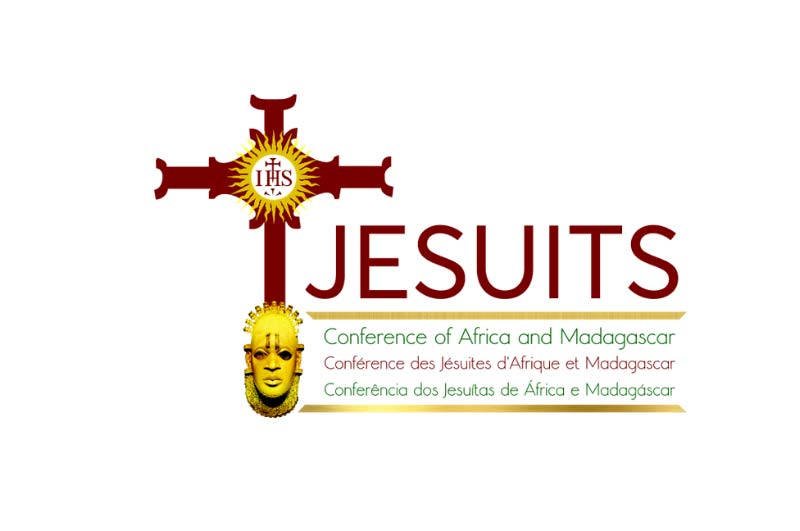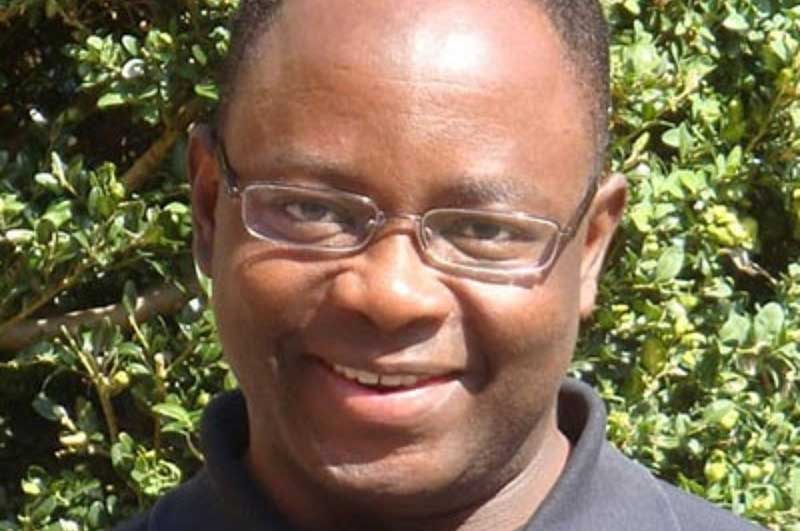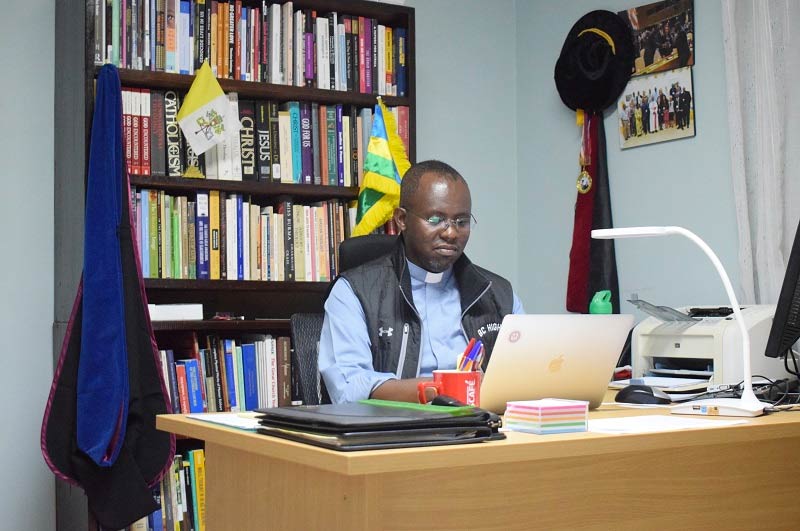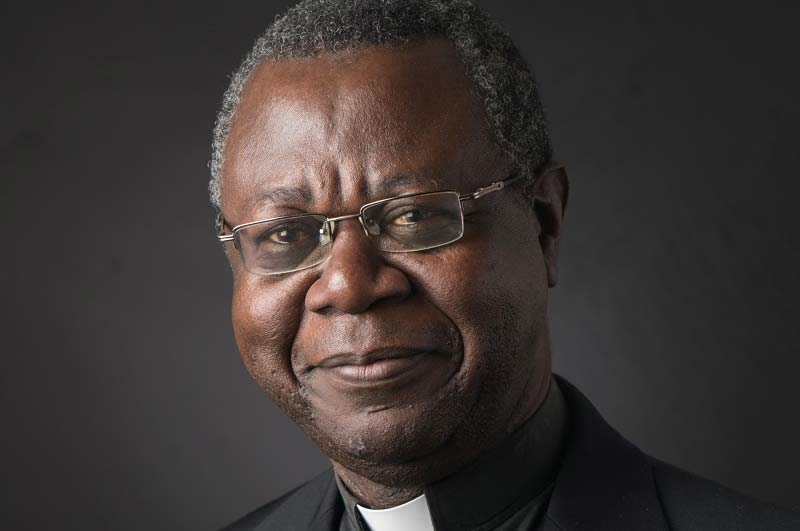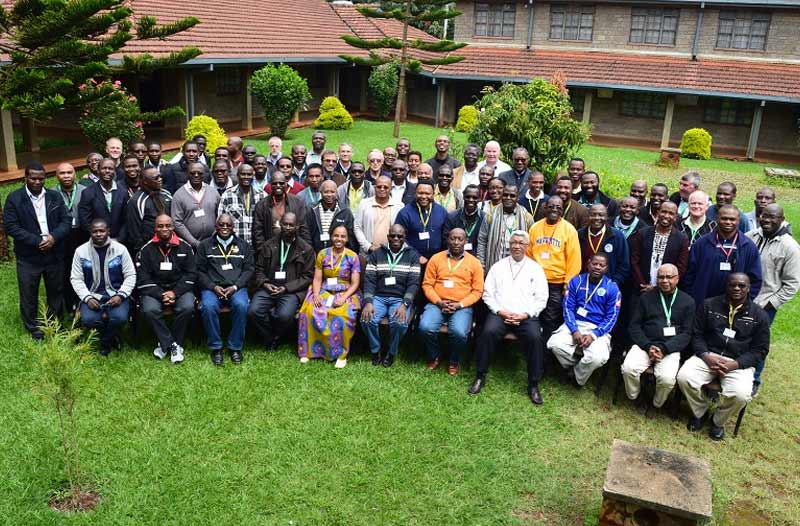


The fourth day of the JCAM Formation Assembly kicked off with a prayer as has been the norm throughout the sessions, then Brother Reginald Cruz, an invited speaker from Xaverian Brothers took the podium to speak about the transformative and creative ways of fulfilling the mission of formation in Africa and Madagascar.
Brother Cruz gave reflections based on the different models of consecrated life before and after the Second Vatican Council. He stated that before the Council, the Church showed a concern for education and focussed on modification of behaviour in formation for those in consecrated life. After the Council, there was a change in the theology and in the practice of consecrated life in late modern society. Formation is seen as the backbone of this renewal. An important element of this renewal can be seen in how the notion of "stability" has been interpreted: consecrated life was not simply a life lived as economically stable - but it is a life which is lived as a permanent commitment. This leads to the conclusion that we can only admit adults to formation - adults who are capable of making such permanent life-time commitments. But a commitment to what? Brother Cruz continued, saying that it is a commitment not simply to service as a consecrated person - which is the doing paradigm - but a commitment to being a sign in the world of Christ. Formation then becomes a path of progressive assimilation of the sentiments of Christ towards the Father. In this context then we can talk of teachability: Formation is wider than simply accumulation of knowledge - it is assimilation of the personality of Christ in the world through the practice of the evangelical counsels. This touches on what we have been saying about holistic formation earlier in the week. We cannot artificially separate apostolic, community, academic or spiritual dimensions to formation. Brother Cruz also mentions that formation is a life-time process - growing into the maturity of Christ is an art which takes time. We need patience.
It also takes resources: He mentioned that the preferred model is the Master / Disciple model. In the past, formation used to be one on one, but now we should be thinking more of 5 men in formation to one formator. Formation then becomes a person-intensive exercise. This has echoes of what we were mentioning earlier in the week about personalised formation.
He also mentioned the context in which we are doing formation: late modern society after the Second World War. The challenges presented to formators these days is that men in formation are critical of authority and looking for their own answers. If men in formation prefer to find their own solutions, this can make accompaniment difficult. Against this backdrop of late modern society, the profile of the ideal formator is not the "living-rule" or the "model" of an ideal Jesuit. Instead, the ideal formator is someone who considers that God is the primary formator and that the formator is there to accompany the man in formation, as they engage with their primary relationship with God. They should help the man in formation towards a greater self-knowledge and self-acceptance as the man deepens his relationship with God, as God reveals to him who he really is: and the fact that he is loved. Again, this is language which is very prevalent in the Annotations to the Spiritual Exercises, as St Ignatius encourages the spiritual director to let the Creator deal directly with the creature.
Formators should know themselves well, in particular their weaknesses, and in this context, the love of God. This again recalls previous discussions about psychological input for formators as well as those in formation.
Formators should be emotionally stable, capable of discernment, and capable of dialoguing with the men in formation.
The session that followed after Brother Cruz’s presentation was by four lay persons, namely: Ms Nicole Facheux who spoke about the Youth, Mr. André Atsu, spoke about the Marginalised, Mr. David Munene, touched on Ecology and finally, Ms Phyllis Muraya whose focal point was Spirituality.
Nicole shared with us her experiences as a mother and member of her catholic charismatic community. She emphasised that the persons in our care can teach us. There needs to be this dialogue between us and those we are forming. We need to discover the their unique talents and gifts and rejoice in them, rather than seeking to always instil what we have learned. This seems to be again emphasising a personalised approach to formation. Every person is different and we need to acknowledge this.
She mentions that we cannot always rely on the upbringing we have had, but need to meet the people who we are accompanying where they are, trying to provide what they need at any one time and for any particular context.
She notes that the Jesuits in formation who she knows look tired, and she wonders whether the theological input emphasises too much the dogmatic content. She also observes that some men in formation lack compassion and have a tendency to be arrogant in their interaction with lay people - exhibiting a clerical attitude.
Ultimately, she says that we should love the men in formation. She mentions that when the Gospel says: let the young come to me, don't keep them away, this should be looked at as a reference to the young in formation. Again the theme of love, which we have encountered earlier in the week, comes out strongly.
André shared with us his experience of working with the people on the margins. He emphasised that people who work with those on the margins of society need to have compassion for them, and also passion. He notes that one of his desolations has been that some of the men sent to work for JRS do not exhibit this at all. Some treat JRS as work done on holiday. He asks an important question: Can we mission Jesuits to work with the marginalised? Perhaps in the context of the UAP's and the conversion which these call us to, André's question asks us to seriously look at those in probation to see how they are responding to this call.
Perhaps in this context, his observation is particularly important, that JRS is generally not asked by superiors for input on how a work placement went for men in formation - to get feedback. He asks another question: Is formation only about academic input? Men who work with the marginalised need to be professional, responsible and accountable - not just for the resources that they are using or money, and not just to their superiors - but they need to be accountable to the people that they serve. They also need to be able to live a simple life-style and be open to be moulded by the context in which they work. Finally, they need to be able to collaborate well with lay people and have the ability to take instructions from them. How do we provide the formation necessary to men who need these skills?
David asks the question why the Spiritual Exercises are not making an impact on us, in particular with regards to ecology and preservation of the planet? Again, we have seen this question come up before during the week. He emphasises that the Spiritual Exercises are meant to make us more open and responsive to God, and deepen our relationship with the world and those around us. He asks an important question. Are we aware of what is going on in the world and to the world around us? Perhaps formation should be helping us to build this awareness.
As a way that we can keep tabs on how we are doing with regards this awareness, he advocates using an examen to see how we are doing and responding to our environment.
He notes that Jesuits seem to have a difficulty of collaboration, of working together. This difficulty is compacted by the fact that Jesuits don't seem to know what other Jesuits and others outside the community are doing. Again, the theme of collaboration comes up again strongly here.
Finally, he notes that Jesuits seem always to like the big projects, but do not think that small actions are worthy of attention: this mitigates against doing small things, in community for instance, for the environment.
Phyllis gave some practical examples of where the Spiritual Exercises have worked in people's lives. Through the ministry of the Exercises, the image of God, that the people in her examples had received, had changed. Through the Exercises, people were introduced to a God who is alive. Because she knows that they work, she wonders about the availability of spiritual directors to people: Are we giving enough formation to our men for this.
She related a story of two Jesuits, one who responded in availability to someone in need and another who was not available. This story indicates two profiles, perhaps, of Jesuits: one with compassion and patience and the other who was distracted. The story indicates the importance of patience, the importance of listening, the ability to be empathetic and respectful. How does formation respond to these important skills?
Related Articles


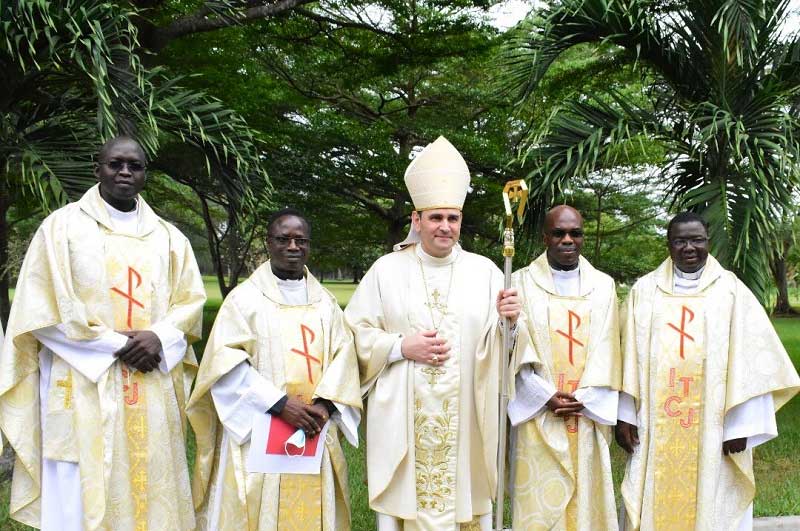
Select Payment Method
Pay by bank transfer
If you wish to make a donation by direct bank transfer please contact Fr Paul Hamill SJ treasurer@jesuits.africa. Fr Paul will get in touch with you about the best method of transfer for you and share account details with you. Donations can be one-off gifts or of any frequency; for example, you might wish to become a regular monthly donor of small amounts; that sort of reliable income can allow for very welcome forward planning in the development of the Society’s works in Africa and Madagascar.
Often it is easier to send a donation to an office within your own country and Fr Paul can advise on how that might be done. In some countries this kind of giving can also be recognised for tax relief and the necessary receipts will be issued.


